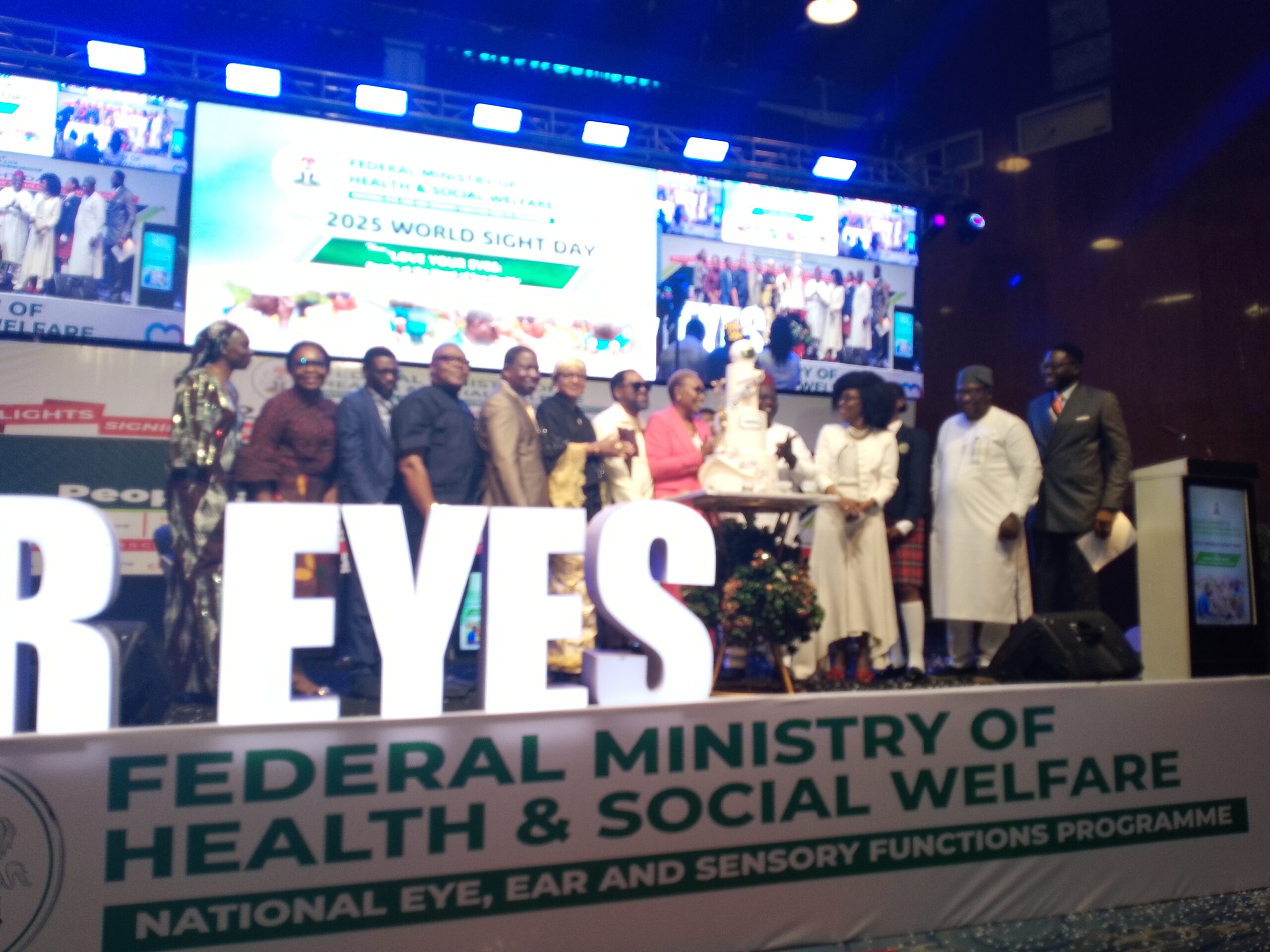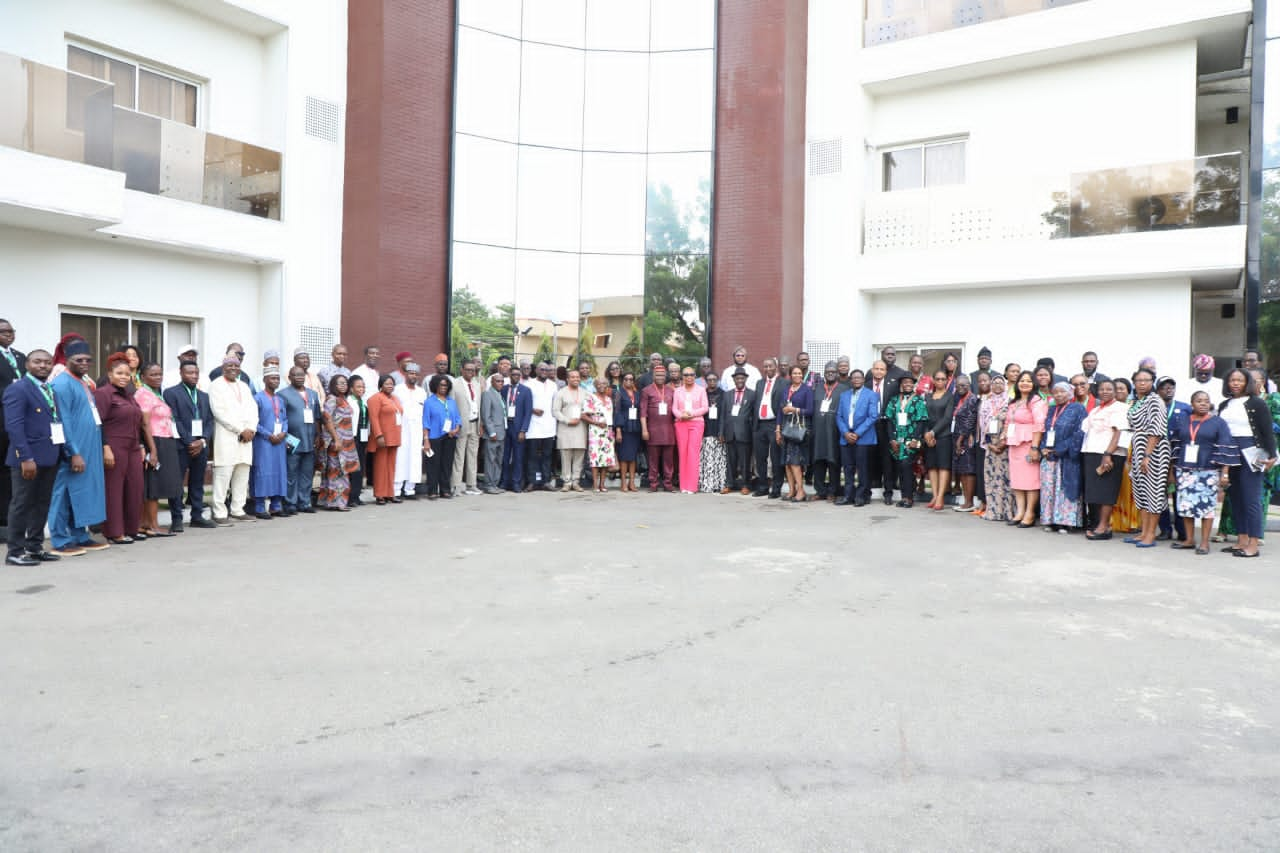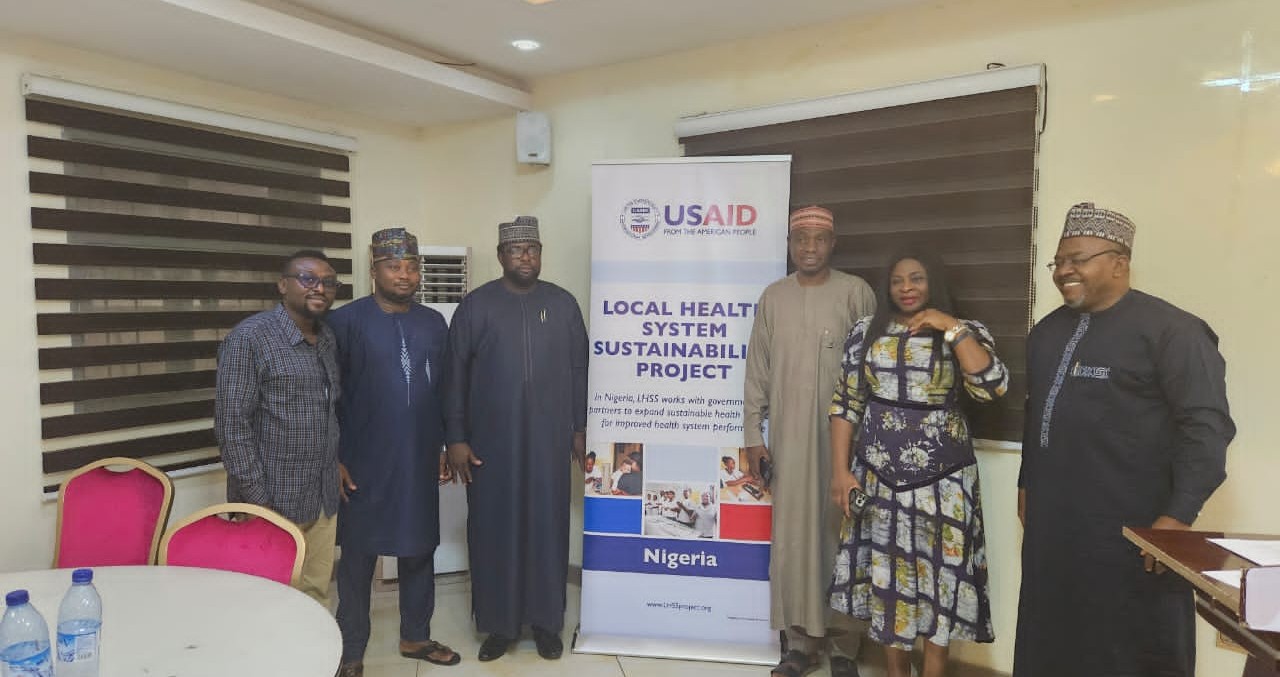Coordinating Minister Laud’s President Tinubu on Health, Social Well-being of Nigerian’s

By Fatima Saka
The Coordinating Minister of Health and Social Welfare Prof Muhammed Ali Pate has hailed President Ahmed Bola Tinubu, for the incredible and visionary leadership, placing the health and social well-being of Nigerians as a priority in his administration’s Renewed Hope Agenda.
Prof Pate further expressed the President’s explications toward good health is core to harnessing Nigeria’s greatest asset, its human capital, is at the heart of the relentless efforts to ensure that all Nigerians are on path to
have access to improved quality health services and without financial hardship.
The Coordinating Minister made this statement while delivering his keynote address on Tuesday at the State House in Abuja at the commemoration of Universal Health Coverage Day, and launching of Nigeria’s Health Sector Renewal Investment Initiative and the signing of the Health Renewal Compact by Federal, State Governments, and Development Partners.
Theme: “Health for All: Time for Action”.

Pate said that the significantly increased allocation of federal government’s budget to health and social sectors in the proposed 2024 appropriation, demonstrates your unprecedented political will, and certainly go a long way in starting to address the financial gaps that have so far limited Nigeria from achieving an efficient, equitable and a quality health system.
“Our Strategic blueprint, to “save lives, reduce both physical and pain and produce health for all Nigerians” is anchored around Nigeria’s progress towards Universal Health Coverage.
“To improve population health outcomes, we need access to affordable and quality health services for all Nigerians.
“It requires effective governance, coordination and collaboration
between Federal Government, State Governments, Development
Partners, as well as Citizen and Civil Society Platforms.
“The Health Sector Renewal we are launching today, is a bold effort,
a historic window of opportunity, and call to action, to reform and implement the National Health System as provided for in the National Health Act.
“The Sector-Wide Compact is based on our collective recognition that, health is one of the keys to human capital accumulation; and a healthy,economically productive population, growing at a sustainable pace, supported by a health system that caters for all, is essential to Nigeria’s socio economic development.
“We recognize that, the challenges to achieving our national health objectives include constrained governance systems and structures, with limited accountability, inadequate, inefficient, and inequitable health care financing, shortage, and mal distribution of human resources for health, limited availability of quality health
commodities, insufficient citizens’ and community engagement and hyper fragmented, poorly coordinated external development assistance.
“By signing the Compact today, and we arc agreeing to align our objectives with the priorities articulated in the Renewed Hope Health Sector Blueprint’s pillars to improve governance, accountability to our citizens, focus on reversing high maternal,
newborn, and childbirth diseases and deaths, unlocking the health care value chain through State-directed medical industrialization in partnership with the private sector, and enhancing Nigeria’s resilier.ce and health security.
“We will be adopting a more coordinated approach between Federal Government, State Governments, FCT, and all
Development Pafiners, to achieve the desired improvement in the health of all Nigerians at scale.
Highlighting the process of redesign path of healthcare services in Nigeria, the coordinating minister said redesigning of the Basic Health Care Provision Fund, comprising at least I% of the Consolidated Revenue Fund, provided by the National Health Act (201 4), as the foundational basis of the sector-wide approach, to:
“Ensure more equitable allocation of resources to the poorest and most disadvantaged populations.
“Mobilize additional development partner (multilateral, bilateral, philanthropic, and private sector) financial resources to a common pool or aligned in parallel with the sector-wide approach.
“Specifically, we expect at least $2.5 billion in pooled and non pooled financing in the period 2024-2026, to be mobilized and channeled to improve our primary health system and achieve results.
“This represents contributions from external development partners and the Federal Government, expecting that State
Governments, where primary health is delivered, will also contribute to the efforts.
“We expect to double the number of fully functional Primary Healthcare Centers (PHCs) receiving Decentralized Facility
Financing for infrastructure upgrades, and operational costs to ensure delivery of high quality essential Primary Health Care package. Starting by making the existing 8,809 fully functional and gradually increasing to 17,618 PHCs by 2027 in all 36 States and the FCT.
“Link each of the PHCs in this effort to a Secondary Care facility providing Comprehensive Emergency Obstetric and
Newborn Care and referral system by progressive development of a National Emergency and Medical Ambulance System.
“We will refine the Vulnerable Group Fund (VGF) under the National Health Insurance Authority, working with the States, optimizing risk pools to strategically purchase the highest impact benefit package to improve health outcomes with a focus on financial protection. We move Nigeria closer towards achieving universal Health Coverage by gradually expanding health insurance coverage, ensuring healthy and viable risk pools, through more effective governance, and establishing an enabling environment for better public and private sector collaboration.
“Complement the BHCPF financing in the sector-wide program TV, with public health interventions to reduce the burden of Communicable and Non- Communicable Diseases including malaria, tuberculosis, and HIV/AIDS, strengthening systems and
improve health security.
“Prioritize “best-buy” investments in community health, medical center critical entry point to public health services.in a people-centered health system. As a first step, we are retraining of up to 120,000 frontline health workers as collaborative effort between Federal, State Governments, and key development partners to be followed by enhanced deployment of those frontline health workers.
“We will also make transparent to all Government, Non Governmental Partners, CSOs, and Citizens, the resources
allocated, released, and results achieved over time.
“While appreciating the tremendous collaboration we received from Excellencies the Executive Governors of States, the Nigeria Governors’ Forum, all State Commissioners of Health, SPHCDAs, including at the 64th National Council of Health, where the Sector-Wide approach was approved; We call on all State Governments and the FCT to complement the Federal Government
by undertaking the following specific policy actions:
“Increasing their budget allocation and timely releases of funds for primary health care services, immunization, family planning, and public health, and to make those allocations and releases public, verifiably fulfilling jointly agreed counterpart obligations, in call-out or in-kind, in support of the BHCPF sector-wide approach, to their State Primary Health Care Development
Agencies and State health Insurance Authorities and streamlining processes for disbursement and accounting for
such transfers.
“Exploring innovative financing options, to expand universal health coverage especially for poorest Nigerians, potentially including health surcharges, and considering providing additional health resources as first charge from the State portion of the VAT pool.
“Explaining the training and retaining qualified health reenforced dedicated to service delivery, at community levels, primary health centers and hospitals.
“Ensuring presentation and consideration of routine data on health outputs, and intermediate outcomes, on a quarterly basis in State executive councils, Nigeria Governors’ Forum, and National Economic Council meetings. Including their strong voice, participating in community health, engaging traditional and religious leaders in all the states
“On our paths, we commit to the establishment of a joint coordination and monitoring mechanism in the Sector-Wide approach, establishing a common database of all health development partner engagements with the Federal Government and all 36 States and FCT, a results scorecard to transparently chart
progress, on a regular basis (at least annual, semi-annual) and hold each other accountable in bi-directional ways, to achieve desired results.
“We will ensure the preparation and presentation of an annual report of the State of Health of Nigerians and the National Health System, as provided in the National Health Act, to Mr. President,the National Assembly, Federal Executive Council, and the National Economic Council, and the hosting of a National annual joint review of performance along the benchmarks set out in the sector-wide indicators framework; and We appreciate that our health development partners for all the intense work they have done with us in the last 3 months, and who have agreed to fully support the sector-wide approach; to align behind Government’s priorities supporting national ownership; strengthen and use national institutions and systems where possible; and to reorient all technical and financial assistance, in a nationally
coordinated manner, to the front ends of service delivery rather than processes and activities.
“Complementary to the sector-wide approach, to address our prevailing human resources challenges, we are tackling it through plan to:
“increase the production of health workers by increasing the annual quota of training institutions. Overproducing health, workers will ensure we have enough of a trained and competent health workforce.
“Explore managed migration programs through bilateral whereby both Nigeria and recipient countries have mutual benefits. For Nigeria, this will include reinvesting, financial returns from the agreement in improving quality of training institutions, and exchange training programs to strengthen the competencies of our health workers. We call on all countries benefiting from the “Japa” syndrome to reciprocate
by investing in more training of health workers here in Nigeria.”






